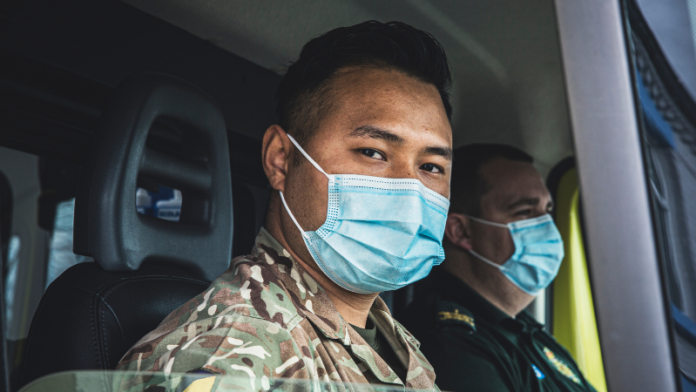The North West Ambulance Service is to bring in 150 army personnel in the face of increasing pressure on the service during the current Omicron crisis.
“They will partner with NWAS clinicians on the road, allowing us to make more efficient use of our emergency resources and supporting the wider NHS system.” says the service and “will be available to respond to patients whose need is not urgent who often have longer waits when the service is busy.
This cohort will begin training on the 11 January and continue to work for a number of weeks.
Director of Operations Ged Blezard says, “It is no secret that the ambulance service, along with the NHS as a whole, has been under extreme pressure for several months. Now we are also experiencing high numbers of staff absences due to confirmed COVID-19 cases and isolation, with around 25% of the workforce currently affected. As part of our resilience planning, we can make a request to the military for support and feel now is the right time to put the arrangements in place.
“We worked alongside the military last February and March, and it allows us to have more of our vehicles on the road, getting people the treatment they need sooner. This frees up emergency ambulances to attend to urgent, life-threatening cases.”
The military personnel will receive NWAS training in driving ambulances, manual handling, kit familiarisation and basic life support, similar to the standards of the trust’s patient transport staff who have also been supporting the emergency service throughout the pandemic.
It follows a very successful partnership last winter, when military colleagues were deployed to more than 4,600 non-life-threatening 999 incidents, including assisting with transportation of patients between healthcare sites approximately 1,700 times. Feedback from those who worked with the military personnel was overwhelmingly positive.
Ged added, “I would like to thank our NWAS team of staff and volunteers for their continued dedication over the last two years. They have been working incredibly hard to deliver the best possible service for our patients. Taking this timely intervention to increase our resources means we can carry on doing that while providing extra support for our staff and patients during another challenging period.







